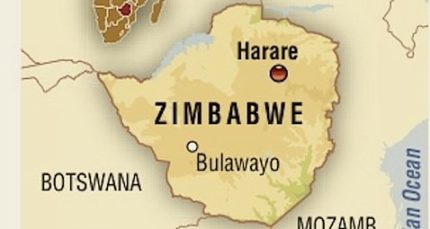
Empowerment minister Patrick Zhuwao
The decision by Cabinet to, next month, shut down foreign companies which have not complied with the indigenisation law exposes the futility of the West’s attempts to re-engage the Mugabe regime, a local opposition party has said.
Empowerment minister Patrick Zhuwao, a nephew to President Robert Mugabe, earlier this week announced that Cabinet, after a marathon 13-hour meeting, had decided that all non-compliant companies would be closed by April 1.
The empowerment laws force foreign firms to localize control and ownership of at least 51 percent of their Zimbabwe operations.
The opposition People’s Democratic Party said the “drastic decision” was proof that Mugabe and his government were not interested in genuine reforms as claimed by finance ministry officials in their push for new financing from the West.
The threat to close companies “should trigger serious thought analysis on those foreign and international bodies that had fallen into the mirage of reform which Zanu PF had created,” said Willias Madzimure, PDP’s Secretary for International Relations.
“For the umpteenth time we repeat that Zanu PF is not interested in genuine reforms but in fooling the international community to allow it to access much needed funds from the IMF, World Bank and AfDB.
“Again we repeat Zanu PF has no reformers but looters and grabbers and it would be foolhardy for anyone to think that they would reform.
“The cabinet decision betrays this position and it is the most articulate message to date that engagement with Zanu PF is a waste of time. Our colleagues in the international community such as the local British Embassy must get the message very clear.”
Finance minister Patrick Chinamasa and central bank officials have led the reform agenda in the government’s engagement with the IMF.
Reserve Bank chief John Mangudya recently claimed that the international lender would resume financial support for Zimbabwe this year.
However, the PDP said Mugabe and his government were not committed to reform.
“The attempt to create an illusion of reform is a necessity pushed by the worsening financial woes which is facing this regime,” said Madzimure.
“The government is failing to raise enough salaries for its bloated workforce. For the record, by May 2013 the government had 270,000 workers but by the end of July 2013 it had ballooned to over 500,000 because of ghost workers who were recruited to rig the 2013 elections.
Read more at www.zimbabwesituation.com


